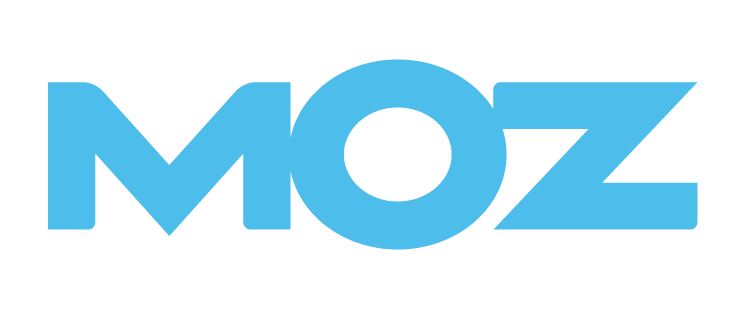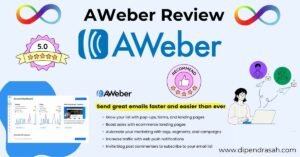
Moz Review 2025: Is It the Right SEO Tool for You?
Search Engine Optimization (SEO) is crucial for businesses aiming to enhance their online visibility, and choosing the right tool can make all the difference. Moz, a well-known name in the SEO industry, offers a suite of tools designed to help marketers improve their search rankings. In this comprehensive Moz review for 2025, we’ll explore its features, benefits, drawbacks, and answer key questions like: Is Moz accurate?, How much is Moz per month?, Which is better, SEMRush or Moz?, and Is Moz free or paid?
What is Moz?
Founded in 2004 by Rand Fishkin and Gillian Muessig as SEOMoz, Moz started as a blog and online community for SEO enthusiasts. Over the years, it evolved into Moz Pro, an all-in-one SEO software suite that’s now considered an industry standard alongside competitors like SEMRush and Ahrefs. Moz provides tools for keyword research, site audits, backlink analysis, rank tracking, and local SEO, aiming to simplify complex SEO tasks for businesses of all sizes.
Key Features of Moz Pro
Moz Pro offers a robust set of features to support SEO campaigns:
- Keyword Research: Moz’s Keyword Explorer provides insights into keyword difficulty, search volume, and SERP analysis, helping you identify high-value keywords. It includes unique metrics like Organic CTR and Priority Score to prioritize keywords effectively.
- Site Audits: Moz crawls your website to identify technical SEO issues, such as broken links, missing meta tags, or slow-loading pages, and provides actionable recommendations to fix them.
- Backlink Analysis: Moz’s Link Explorer offers detailed insights into your site’s backlink profile, including Domain Authority (DA), Page Authority (PA), and spam scores, helping you assess link quality and identify link-building opportunities.
- Rank Tracking: Track keyword performance across 170+ search engines, with options to monitor local and national rankings.
- Domain Analysis: Get a quick snapshot of a website’s SEO performance, including DA, linking domains, and top-ranking keywords, ideal for analyzing your site or competitors.
- Moz Local: A separate tool for managing local business listings, ensuring consistency across platforms like Google My Business and Yelp (starts at $14/month).
- Educational Resources: Moz’s Learning Center includes the Beginner’s Guide to SEO, whitepapers, videos, and on-demand courses, making it a valuable resource for beginners and experts alike.
Is Moz Accurate?

Moz’s accuracy, particularly for metrics like Domain Authority (DA) and keyword data, is a common question among users. DA, a proprietary Moz metric, predicts a website’s ranking potential on a scale of 0-100. While DA is widely used, it’s not a Google ranking factor, and its accuracy depends on Moz’s crawl data and algorithm updates. Recent improvements to Moz’s backlink database have enhanced DA’s reliability, with many SEOs considering it more accurate than SEMRush’s Authority Score for predicting ranking potential.
However, Moz’s keyword search volume and traffic estimates can sometimes differ from actual data in Google Search Console (GSC). For example, Moz might report lower search volumes for certain keywords compared to tools like Ubersuggest or SEMRush. While Moz provides valuable insights, it’s best to cross-reference its data with GSC or Google Analytics for precise performance metrics, as no SEO tool offers 100% accuracy.
Verdict: Moz is generally accurate for backlink analysis and DA, but keyword and traffic estimates may vary. Use it alongside other tools for a complete picture.
How Much is Moz per Month?
Moz Pro offers four pricing tiers, with discounts for annual billing. Here’s a breakdown of the monthly costs (as of 2025):
- Starter Plan: $49/month ($39/month if billed annually) – Designed for small businesses, includes 1 campaign, 50 keyword queries/month, and 20,000 page crawls/month.
- Standard Plan: $99/month ($79/month if billed annually) – Supports 1 campaign, 150 keyword queries/month, and 100,000 page crawls/month.
- Medium Plan: $179/month ($143/month if billed annually) – Offers 10 campaigns, 5,000 keyword queries/month, and 750,000 page crawls/month.
- Large Plan: $299/month ($239/month if billed annually) – Ideal for larger businesses, includes 25 campaigns, 3,000 keyword queries/month, and 5 million page crawls/month.
Moz also offers a 7-day free trial to test the platform. Moz Local is priced separately, starting at $14/month.
Note: Moz’s API access is notably affordable, starting at $5/month for 750 rows of data, compared to SEMRush’s $499.95/month Business plan for API access.
Which is Better, SEMRush or Moz?
Choosing between SEMRush and Moz depends on your business needs, budget, and SEO goals. Here’s a detailed comparison:
SEMRush Pros:
- Comprehensive Marketing Suite: SEMRush offers over 55 tools, covering SEO, content marketing, social media, PPC, and competitive analysis, making it ideal for businesses seeking an all-in-one solution.
- Larger Database: SEMRush’s keyword database is significantly larger (20x bigger than Moz’s), and its backlink database includes over 25 trillion links, providing more extensive data for research.
- User-Friendly Interface: SEMRush’s navigation is intuitive, with all tools accessible in one dashboard, reducing the learning curve compared to Moz.
- Unlimited Reports: Unlike Moz, SEMRush doesn’t limit keyword or backlink analytics reports, offering greater flexibility for heavy users.
SEMRush Cons:
- Higher Pricing: SEMRush starts at $129.95/month, more expensive than Moz’s $49/month Starter plan.
- Learning Curve: While user-friendly, SEMRush’s extensive features can overwhelm beginners.
- Additional Costs: Features like extra users ($45/month per user) or advanced tools are behind paywalls.
Moz Pros:
- Affordable Pricing: Moz’s Starter plan at $49/month is budget-friendly for small businesses or startups.
- Simplified Interface: Moz’s streamlined approach is ideal for beginners or those focused on core SEO tasks like keyword research and link analysis.
- Strong Educational Resources: Moz’s Learning Center and Beginner’s Guide to SEO are unmatched, offering free and paid training for all skill levels.
- Accurate DA Metric: Moz’s DA is considered more reliable than SEMRush’s Authority Score for assessing domain strength.
Moz Cons:
- Limited Reporting: Moz restricts keyword queries (e.g., 150/month on the Standard plan), while SEMRush offers unlimited reports.
- Smaller Database: Moz’s 1.25 billion keyword database is dwarfed by SEMRush’s, limiting its depth for advanced research.
- Less Intuitive Interface: Some users find Moz’s interface less user-friendly, requiring time to locate features.
- No Mobile App: Unlike SEMRush, Moz lacks a mobile app, reducing accessibility.
Verdict: SEMRush is better for businesses needing a comprehensive marketing suite with extensive data and unlimited reports, especially for advanced users or agencies. Moz is ideal for small businesses, beginners, or those prioritizing affordability and simplicity, particularly for backlink analysis and local SEO. If budget allows, SEMRush’s broader capabilities give it an edge.
Is Moz Free or Paid?
Moz offers both free and paid options:
- Free Tools: Moz provides limited free tools, such as basic keyword research, domain analysis, and the MozBar Chrome extension (free version). These are useful for quick checks but lack the depth of paid features.
- Paid Plans: Moz Pro is a paid subscription, starting at $49/month for the Starter plan. A 7-day free trial is available to test premium features. Moz Local is also a paid tool, starting at $14/month.
- Free Resources: Moz’s Learning Center, including the Beginner’s Guide to SEO, is free and accessible to all users, making it a valuable educational tool.
Verdict: Moz is primarily a paid tool, but its free tools and resources offer limited functionality for beginners or those on a tight budget.
Pros and Cons of Moz
Who Should Use Moz?
Moz is best suited for:
- Small Businesses and Startups: The Starter plan is cost-effective for managing one website.
- Local Businesses: Moz Local is a valuable tool for managing listings and improving local search visibility.
- SEO Beginners: Moz’s educational resources and simplified interface make it approachable for those new to SEO.
- Developers: Affordable API access is ideal for integrating SEO data into custom apps.
For agencies or advanced SEOs needing extensive data and unlimited reports, SEMRush or Ahrefs may be better options.
Conclusion
Moz Pro remains a solid SEO tool in 2025, offering affordability, reliable backlink analysis, and exceptional educational resources. While it’s not as comprehensive as SEMRush, its simplicity and budget-friendly pricing make it a great choice for small businesses, beginners, and local SEO. However, its limited reporting and smaller database may not suit advanced users.
To decide if Moz is right for you, take advantage of its 7-day free trial to explore its features. If you need a more robust marketing suite, consider SEMRush, but for core SEO tasks on a budget, Moz delivers solid value.



